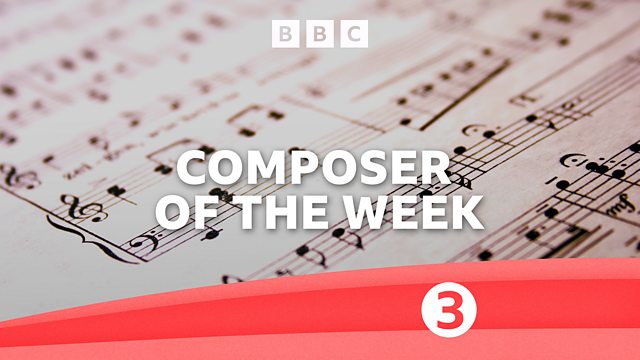
Adventures in Europe
Imogen Holst returns to the UK and tries to find the right job. Presented by Donald Macleod.
Holst returns to the UK and tries to find the right job. With Donald Macleod.
Imogen Holst was a significant part of the British classical music scene during the twentieth century. Holst was prominent as a composer, conductor, writer on music, teacher, administrator and artistic director. She also worked as an amanuensis to Benjamin Britten. As the daughter of Gustav Holst, Imogen was raised in an artistic environment, and her early aspirations were to be a dancer. She studied at the Royal College of Music where she won a number of prizes and awards, and developed a passion for British folksong. During World War Two, Holst travelled the UK to support cultural activities, and she established the famous music education centre at Dartington Hall in Devon. There followed an invitation to Aldeburgh where she would support Benjamin Britten for many years in his compositional activities. Holst later became an Artistic Director for the Aldeburgh Festival. She wrote many books, including studies of Britten and her father. In later in life, she was active in cataloguing her father’s compositions and preparing them for publication. Throughout this exceptionally busy career, including establishing the Purcell Singers and giving radio interviews, Imogen Holst continued to compose and wrote many works from choral pieces and folksong arrangements, to concertos and string quartets. Her considerable output as a composer is only just beginning to be appreciated, and throughout this series we also hear archive recordings of Holst in interview.
During Imogen Holst’s time studying in London at the Royal College of Music, she had also begun to travel abroad including France, Spain and also Canada. Towards the end of her studies Holst was now awarded a grant to support further travels abroad where she could immerse herself in other musical cultures, although often she was wondering where her next meal would come from. Once Holst returned to the UK, she tried out a number of employment opportunities such as a Music Director in Bath, and then working for the English Folk Dance and Song Society. However the main role Holst undertook during the 1930s was as a teacher, where she would have a significant impact introducing her pupils to modern music.
Come Under My Plaidie (Two Scottish Airs)
Catherine Wilners, cello
Simon Marlow, piano
Gigue (Suite for Viola)
Rosalind Ventris, viola
On Westhall Hill
�鶹������ҳ��� Concert Orchestra
Alice Farnham, conductor
Sonata for Violin and Cello
Simon Hewitt Jones, violin
Oliver Coates, cello
Prelude and Dance
Duncan Honeybourne, piano
Three Psalms
Choir of Clare College, Cambridge
The Dmitri Ensemble
Graham Ross, director
Produced by Luke Whitlock
Last on
Music Played
-
![]()
Imogen Holst
Come Under My Plaidie
Performer: Catherine Wilners. Performer: Simon Marlow.- DECCA : 487-617-8.
- DECCA.
- 19.
-
![]()
Imogen Holst
Suite for viola (Gigue)
Performer: Rosalind Ventris.- Delphian DCD34292.
- Delphian.
- 15.
-
![]()
Imogen Holst
On Westhall Hill
Orchestra: �鶹������ҳ��� Concert Orchestra. Conductor: Alice Farnham.- NMC : CD-280.
- NMC.
- 10.
-
![]()
Imogen Holst
Sonata for Violin and Cello
Performer: Simon Hewitt Jones. Performer: Oliver Coates.- NMC : NMCD236.
- NMC.
- 14.
-
![]()
Imogen Holst
Prelude and Dance
Performer: Duncan Honeybourne.- PRIMA FACIE : PFCD 244.
- PRIMA FACIE.
- 1.
-
![]()
Imogen Holst
Three Psalms
Choir: Clare College Cambridge Choir. Ensemble: Dmitri Ensemble. Director: Graham Ross.- HARMONIA MUNDI : HMU-907576.
- HARMONIA MUNDI.
- 7.
Broadcast
- Tue 21 Jan 2025 16:00�鶹������ҳ��� Radio 3
Beethoven Unleashed – the box set
What was really wrong with Beethoven?
Composers A to Z
Who knew? Five eye-opening stories from Composer of the Week
Five reasons why we love Parry's Jerusalem
What is the strange power of Jerusalem which makes strong men weep?
A man out of time – why Parry's music and ideas were at odds with his image...
The composer of Jerusalem was very far from the conservative figure his image suggests.
Composer Help Page
Find resources and contacts for composers from within the classical music industry.





